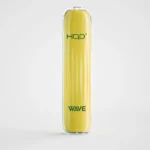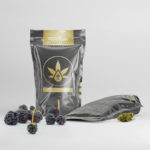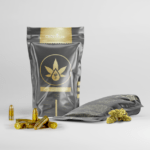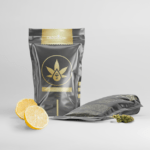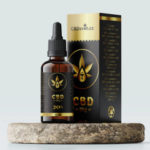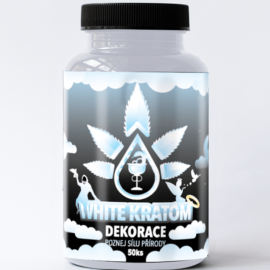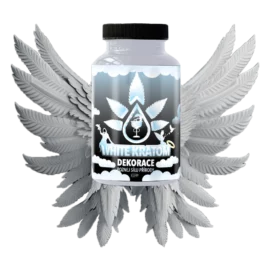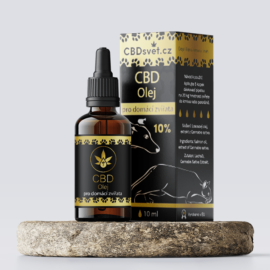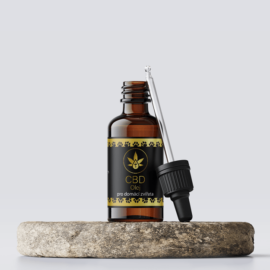There are many cannabinoids (more than 110) and tetrahydrocannabivarin (THCV) is one of the 6 most important. Let’s take a closer look at it and describe its effects on the human body.
What is THCV?
Tetrahydrocannabivarin is a relatively abundant yet little known cannabinoid. It was discovered in 1973, and although not as popular as CBD or THC, it is a very well-studied cannabinoid;
It is a molecule with the chemical formula C19H26O2, which means it contains 19 carbon atoms, 26 hydrogen atoms and two oxygen atoms. It has the typical behaviour of phytocannabinoids in that it is insoluble in water but very soluble in lipid-based solvents. It is structurally similar to the famous psychoactive cannabinoid THC, but there are a few differences between the two, which we list below.
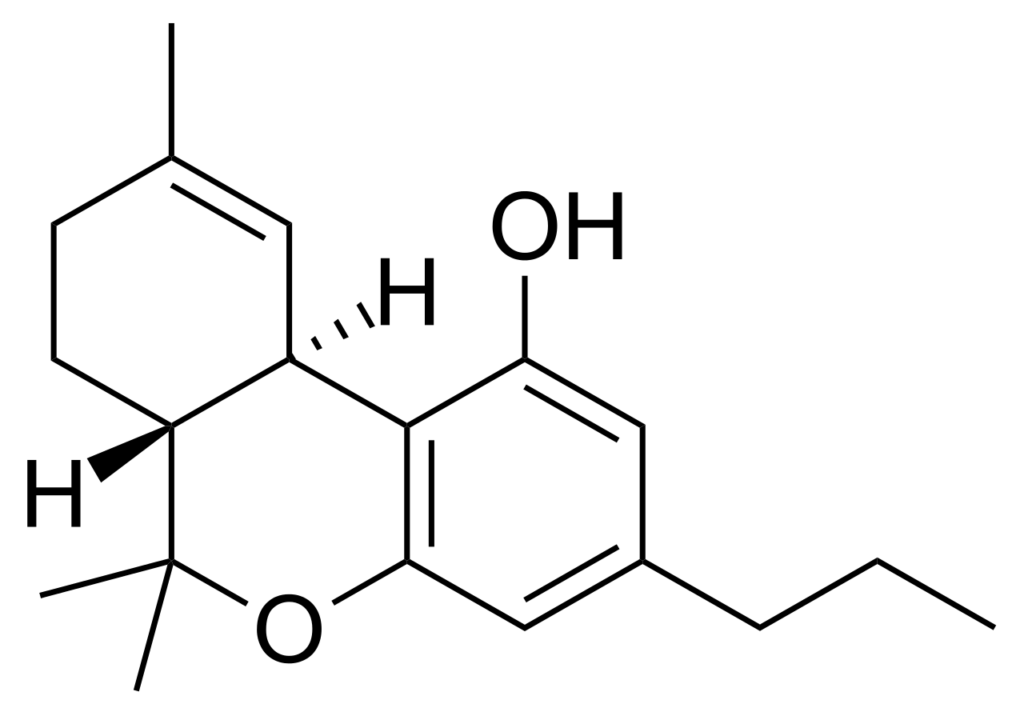
THCV is unusual because it is psychoactive only in high doses, a bit like CBN. The best-known cannabinoids are synthesised from cannabigerol (CBG), a compound found in all forms of marijuana. CBG undergoes a metabolic process that produces CBD, THC and several other cannabinoids. THCV, however, is formed when divaricinoleic acid and geranyl phosphate combine. The resulting THCV is decarboxylated to form THCV;
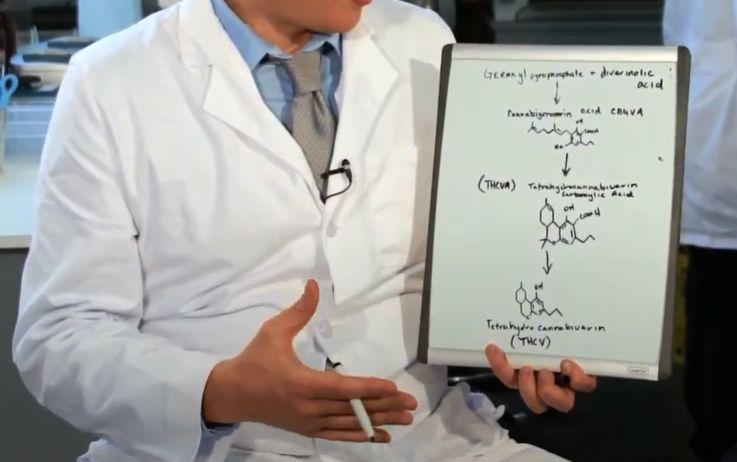
At low doses, THCV acts as a CB1 receptor antagonist, which means you won’t experience a psychoactive state. However, when you increase the dose, something very strange happens, THCV changes behaviour and acts as a CB agonist, like THC. When you smoke a high THCV strain in large doses, you should experience stimulation and a clear head, which unfortunately doesn’t last long. You can expect THCV to work faster than THC, but it lacks the longevity of its cousin.
What is the difference between THCV and THC?
As now mentioned, THCV can somewhat mimic the psychoactive effects of THC in large doses due to their similar structures. For example, their atoms have an almost identical arrangement. However, the side chain of THC is composed of a pentyl group, whereas THCV has a propyl side chain. The most well-known cannabinoids are made of pentyl groups, but some follow the propyl group of THCV (including CBDV and CBV);
One of the most fascinating differences between the two cannabinoids is that THCV suppresses appetite, while THC actually increases it. In fact, studies have shown that THCV can reduce the effects of THC, making it a cannabinoid with which you can experience a psychoactive state while maintaining a lean physique.
Health benefits of THCV
Not only has research found that THCV offers faster and arguably more intense effects than THC when used in large doses, it suggests that THCV has a number of legitimate medical benefits. Along with several other cannabinoids, THCV binds to receptor sites in the immune system, major organs, and the brain;
Weight loss
According to 2016 World Health Organization (WHO) statistics, an estimated 1.9 billion adults are either overweight or obese. This is equivalent to 39% of the adult population worldwide, while 13% are obese. These figures also include data from developing countries, making the statistics even grimmer in Western countries.
One of the main reasons for THCV’s success in this area is that it is an excellent suppressor of CB1 receptors. Research shows that approximately 3 mg per kilogram of bodyweight is the ideal dose for weight loss purposes. Studies also suggest that strains high in THCV and CBD perform better than strains high in THCV and THC;

It seems remarkable that THCV has not been approved as a weight loss treatment when you consider the many drugs that have crazy side effects. Rimonabant is a typical example. This anti-obesity drug causes severe depression (among other side effects), and was taken off the market after a few years due to high suicide rates.
Diabetes
THCV helps to reduce your appetite, so not only is it a great weight loss tool, but it could also become useful for people with diabetes. A study by Wargent et al. published in 2013 showed that THCV has potential as a treatment method for diabetics who suffer from glucose intolerance related to obesity.
Anti-inflammatory properties
In another study by Riedel et al., published in 2009, the research team found that THCV reduced swelling and pain in mice. These are two of the main symptoms of inflammation after exposure to inflammatory chemicals. The team also examined the impact of Rimonabant and found that it inhibited the effects of THCV, a clear sign that THCV activates cannabinoid receptors.
During the study, mice were given THCV every day for four consecutive days after exposure to inflammation. The researchers demonstrated efficacy in reducing inflammation and found that the mice did not develop tolerance to the compound;
Reduction of anxiety
Research has shown that THCV is able to reduce or even eliminate panic attacks, which means it could be a great solution for individuals with PTSD or other anxiety disorders. Most of the research was conducted in Israel, and researchers found that THCV worked because it suppresses our “panic” mode, which occurs during our natural response to threats.
Other benefits
Research shows that THCV is effective in reducing tremors associated with conditions such as ALS and Parkinson’s disease, and also in reducing brain lesions in the latter disease. The compound can also stimulate bone growth, making it a useful addition to osteoporosis treatment options. In addition, there is evidence that THCV reduces seizures, and because it is not intoxicating in smaller doses, it may be a useful treatment for children with epilepsy.
Is THCV legal?
As usual, there is confusion about the legal status of THCVs. As it is derived from marijuana and is psychoactive when taken in large doses, many people would expect it to be treated in the same way as THC. The view of the medicinal effects of cannabis is ever changing and it is possible that what was previously illegal will soon be approved, but it is important to monitor the legal legislation as it relates to individual cannabinoids. So far, the legal status of THCVs in individual states is unclear;
Products that may be of interest to you
High THCV strains
Unlike cannabinoids such as CBN and CBC, there are relatively high levels of THCV in a wide range of marijuana strains. For example, a 2004 article in the American Journal of Botany showed a series of tests around the world with marijuana landraces to determine their cannabinoid levels. This detailed research found more than 150 strains of marijuana with measurable levels of THCV.
In a specific study in 1973, one South African strain was found to have THCV levels above 53%. The best way to find high THCV strains is to focus on African sativas. Here is a list of strains with high THCV:
- Doug’s Varin: 24.3%
- Pineapple Purps: 4%
- Slim Hash: 38.44%
- Ace of Spades: 2.4%
- Agent Orange Nug Run: 1.9%
As you might guess, Doug’s Varin and Slim Hash strains are specially bred to have insanely high THCV content. Slim Hash was created by Andrew Campbell, and his creation won an award at the 2017 Cannabis Classic. Willie Nelson is also a high THCV strain, although it’s difficult to find reliable data on the actual THCV content;

How to get THCV
To obtain THCV, you must first understand the mechanism that leads to its creation. As we mentioned earlier, it is formed when geranyl pyrophosphate reacts with divaricinoleic acid instead of olivetolic acid, leading to the formation of cannabinoids such as THC and CBD;
The initial reaction produces cannabigerovarinic acid, also known as CBGVA, and this new substance reacts with THCV synthase, an enzyme, to form THCVA (tetrahydrocannabivarin carboxylic acid). Finally, THCVA is broken down into THCV by decarboxylation;
If you use a vaporizer to smoke marijuana, it is important that you understand the boiling points. THC, for example, has a boiling point of 314 degrees Fahrenheit, which means that to extract THC you have to keep the pot well below that temperature; most experts recommend cooking at 240 degrees Fahrenheit;
However, THCV’s boiling point is an incredible 428 degrees Fahrenheit – a full 114 degrees higher than THC. As a result, you can prepare edibles at a higher temperature, but there’s a problem with this technique because the various cannabinoids and terpenes start to vaporize once you exceed 245 degrees Fahrenheit (which means you lose a lot of the “active ingredients”);

Conclusion
If you hadn’t heard of THCV before reading this article, we hope you now realize that it is one of the most important medicinal cannabinoids in marijuana. Although it does not have psychoactive effects at low doses, it provides users with intense, euphoric and short-term effects when used in large quantities;
Research so far shows that THCV could become the basis for effective treatments for obesity and type 2 diabetes. Other potential benefits include anti-inflammatory effects, seizure reduction, tremor reduction in Parkinson’s patients, and control of PTSD and anxiety disorders;
It is also interesting to note that while THCV shares a similar profile to THC, down to psychoactivity, it also counteracts some of the negative side effects of THC, such as increased heart rate or weight gain. Until recently, there were few marijuana strains with more than 2% THCV, but now growers are breeding special plants with high THCV content, knowing that this cannabinoid will become extremely popular in the near future;

